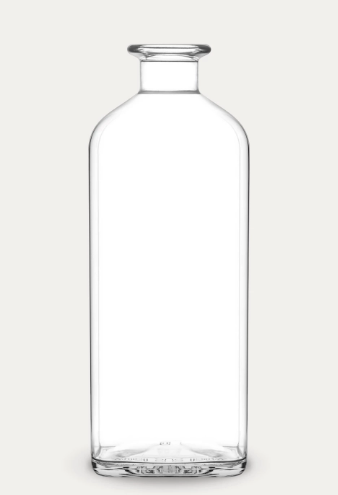Views: 0 Author: Site Editor Publish Time: 2025-10-10 Origin: Site








Glass bottles are everywhere in homes. But are they truly recyclable? Not all glass bottles can be reused. In this article, you will learn which bottles recycle. We will discuss how to recycle glass bottles properly. You will also find tips on reuse and environmental benefits.
Most glass bottles used for beverages and food are recyclable. This includes clear, amber, and green bottles. They are accepted in most curbside programs. The material is durable and can be recycled indefinitely without losing quality.
Some glass cannot be processed in normal facilities. Pyrex, mirrors, light bulbs, ovenware, and ceramics contain contaminants or have different melting points. They may damage equipment or contaminate recyclable batches.
Labels, caps, or minor residues often confuse people. Glass bottles do not need to be stripped entirely of labels. Metal caps should be separated. Broken glass cannot be recycled due to safety and processing limitations.
Recycling reduces carbon emissions, saves energy, and conserves raw materials. For example, adding 1 ton of cullet (crushed glass) to the furnace saves 1.2 tons of raw materials. Recycling also reduces water and air pollution significantly.
Tips: Recycling glass bottles can cut processing CO2 by up to 20% per ton.

Glass bottles are collected through curbside bins or bottle banks. Once at facilities, they are sorted by color and type. Contaminants like plastics and metals are removed to prevent impurities in the final product.
Bottles are crushed into small pieces called cullet. They are washed to remove labels, glue, and debris. This ensures the melted glass remains pure.
Cullet is mixed with raw materials and melted in a furnace. It is then molded into new glass bottles or jars. Proper sorting ensures colors are maintained and cross-contamination is avoided.
Transportation costs, breakage, and low market value sometimes limit recycling. Not all regions accept glass in curbside programs, so checking local guidelines is important.
Tips: Businesses should label glass collection bins clearly to avoid contamination and maximize recyclability.
Rinse bottles to remove liquids or food residues. This prevents odor, pests, and contamination during processing.
Remove metal caps and corks when possible. Labels can remain unless local guidelines specify otherwise.
Keep Pyrex, mirrors, ovenware, and light bulbs separate. Even small amounts can compromise the entire batch.
Use thick gloves and wrap broken bottles before disposal. Never place shattered glass directly in curbside bins. Staff handling glass in offices or factories should receive safety training to reduce injuries.
Glass jars are perfect for jams, sauces, spices, and pantry staples. Bottles can store oils, vinegar, or homemade beverages.
Seedlings can grow in lidless jars. Bottles can create borders, slow-release watering systems, or garden decorations.
Glass bottles can become vases, candle holders, or light fixtures. Custom paint or etching can add aesthetic value.
Turn jars and bottles into art supplies, musical instruments, or educational toys. It encourages sustainability and creativity. Reusing glass bottles reduces demand for new raw materials and lowers operational costs for small businesses.
Glass jars hold pens, paperclips, and other supplies efficiently. They reduce plastic use and clutter.
Old bottles and jars can be donated to schools, community centers, or art programs.
Businesses can install collection bins and partner with recycling facilities to manage glass waste responsibly. Promoting glass recycling in corporate settings can improve ESG metrics and public image.
In certain states, consumers pay a refundable deposit for bottles. Returned containers can earn money and reduce litter.
Recycled glass bottles provide raw material for manufacturers. Incentives include cost savings and potential revenue from deposits.
Countries aim to increase collection rates, such as the UK targeting 90% by 2030. This requires public participation and efficient programs.
Advances in sorting technology, automated processing, and cullet reuse enhance efficiency. This reduces energy use and increases purity of recycled products. Staying updated on recycling regulations helps businesses avoid fines and access incentives.
Glass Bottle recycling is key for sustainability. Most household glass bottles are recyclable. Proper sorting and cleaning improve efficiency. Reuse options extend product life. HYGLASS products offer durability and easy recycling, adding value for homes and businesses.
Table: Quick Reference for Glass Bottle Recycling
| Item Type | Recyclable? | Preparation Tips |
|---|---|---|
| Beverage Bottles | ✅ | Rinse, separate caps |
| Food Jars | ✅ | Rinse, labels okay |
| Pyrex / Ovenware | ❌ | Do not include |
| Mirrors / Windows | ❌ | Dispose separately |
| Light Bulbs | ❌ | Check store recycling |
| Broken Glass | ❌ | Wrap safely, discard |
A: Yes, most household glass bottles are recyclable if sorted and cleaned properly. Follow guidelines on how to recycle glass bottles properly.
A: No, broken glass bottles are unsafe for recycling and should be disposed of carefully.
A: Recycling glass bottles reduces waste, conserves raw materials, and lowers carbon emissions.








